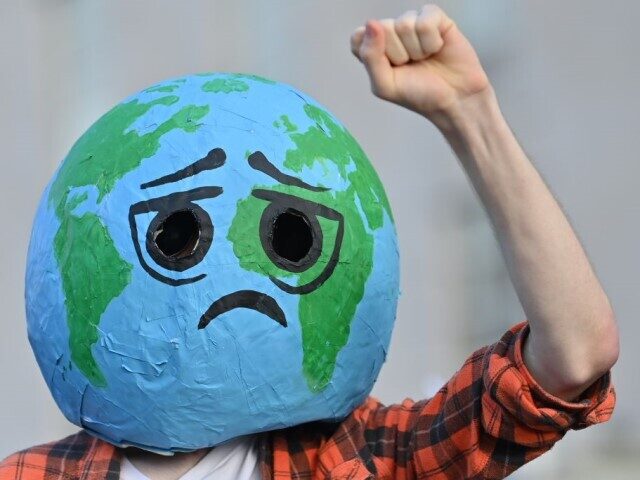Melting glaciers. Unbearable heat. Space junk. Accelerating extinctions. Population growth. Groundwater depletion. Societal decay. The U.N. warned in a report Wednesday these are just a few of the potentially irreversible impacts threatening the planet that must be immediately addressed through drastic changes to “human actions.”
The report and its breathless warnings are just the latest in a long list of catastrophic predictions issued by the globalist organization.
The Interconnected Disaster Risks Report identifies thresholds it calls “risk tipping points,” defined as “the moment at which a given socioecological system is no longer able to buffer risks and provide its expected function” — after which the risk of catastrophe increases significantly.
AFP reports it focuses on six areas that bind the physical and natural world with human society. They are:
- Accelerating extinctions
- Groundwater depletion
- Mountain glaciers melting
- Space debris
- Unbearable heat
- Uninsurable future
“As we indiscriminately extract our water resources, damage nature and biodiversity, and pollute both Earth and space, we are moving dangerously close to the brink of multiple risk tipping points that could destroy the very systems that our life depends on,” said Zita Sebesvari, the report’s lead author.
Water supply is diminishing, the report states, detailing aquifers themselves are now depleting faster than they can be naturally replenished: Saudi Arabia has already crossed the groundwater risk tipping point while India isn’t far behind.
In the case of accelerating extinctions, the report highlights the cascading effects of extinctions throughout food chains.
“The gopher tortoise, which is threatened with extinction, digs burrows that are used by more than 350 other species for breeding, feeding, protection from predators and avoiding extreme temperatures,” the report said.
RELATED: Climate Protesters Arrested After Defacing Italian Fountain, Crowd Cheers After It Reopens
If the gopher tortoise goes extinct, the gopher frog that helps control insect populations will likely follow, triggering effects throughout the entire forest ecosystem of the southeastern United States.
Mountain glaciers that store vast amounts of freshwater meanwhile are melting twice as fast as they did in the past two decades.
“Peak water” — the point when a glacier produces its maximum amount of water runoff due to melting — has been reached or is expected to be reached within the next ten years across small glaciers in Central Europe, Western Canada and South America.
“The 90,000+ glaciers of the Himalayas, Karakoram and Hindu Kush mountains are at risk, and so are the nearly 870 million people that rely on them,” the report said.
RELATED: Climate Whackos Block NYC Streets to Chant Lame Slogans, Build Odd TeePees
In the case of space junk, the report warns Earth’s orbit is in danger of becoming so full of debris that a collision triggers a chain reaction that threatens humanity’s ability to operate satellites — including those that provide vital early warning monitoring against disasters.
Ultimately the U.N. warns that humans must change their ways and cautions against delaying problems rather than genuinely addressing the root causes.
“We need to understand the difference between adapting to risk tipping points and avoiding them, and between actions that delay looming risks and those that move us towards transformation,” it said.

COMMENTS
Please let us know if you're having issues with commenting.